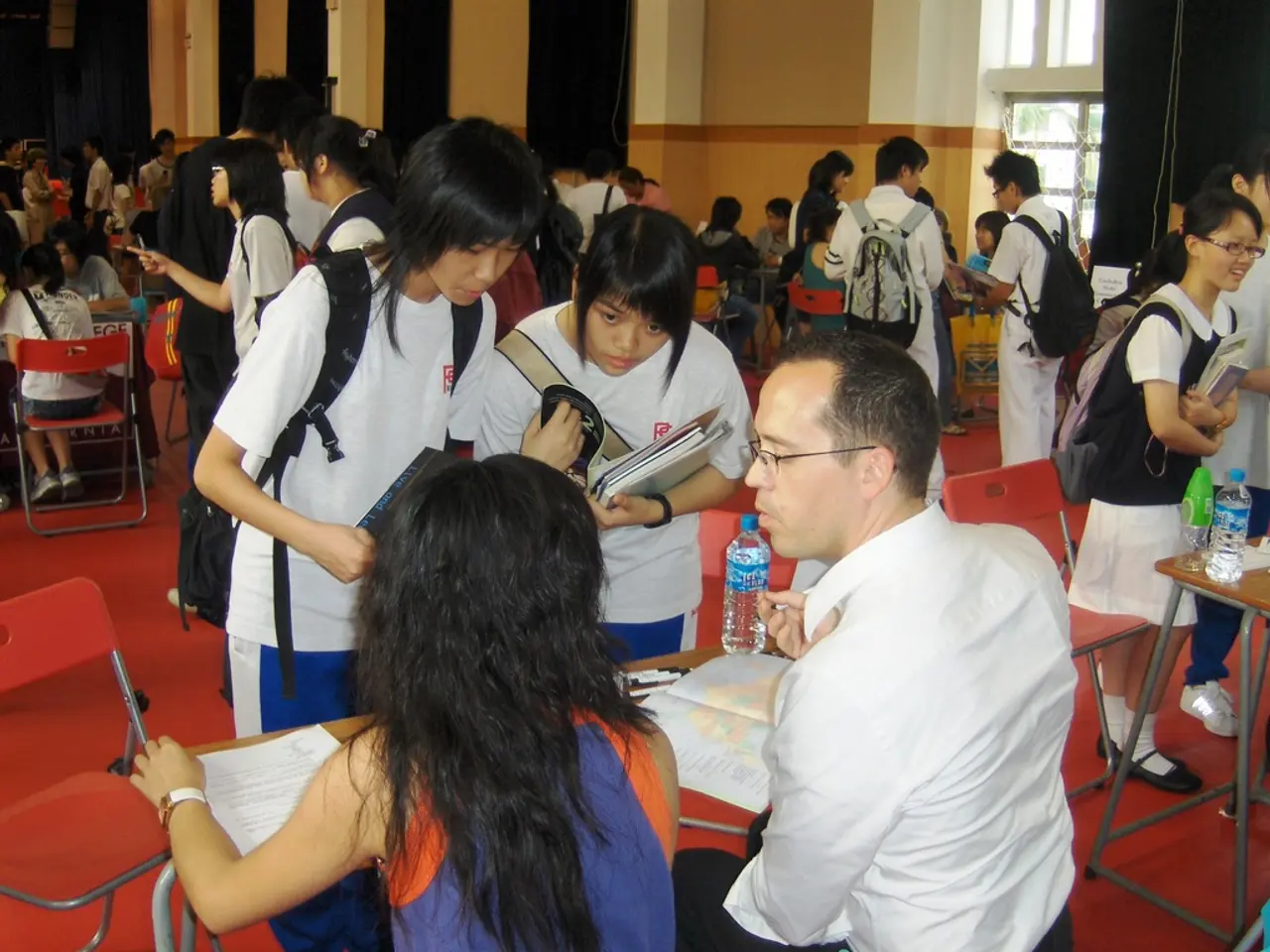Refining Education through a Solid Curriculum Dedicated to Scientific Exploration
In an increasingly complex world, the need for students to be equipped with critical thinking, experiential learning, and problem-solving skills has never been more pressing. This article explores how a well-designed Curriculum for Scientific Inquiry can help achieve this goal.
At the heart of this educational framework lies the principles of scientific inquiry, which include observation, questioning, hypothesis formulation, experimentation, and data collection. These principles serve as the foundation for a curriculum that encourages students to engage with the natural world, ask questions, and seek answers through hands-on investigation.
To foster critical thinking, promote experiential learning, and prepare students for real-world problem-solving, several strategies are particularly effective. Firstly, the use of inquiry-based frameworks like the 5E Model, which structures lessons around phenomena that stimulate curiosity and background knowledge, moving students through hands-on investigation to conceptual understanding. This model is particularly beneficial for diverse learners, as it incorporates graphic organizers, explicit vocabulary instruction, and multiple modalities to support access and articulation of complex science content.
Secondly, embedding real-world problems that connect theory with practice is crucial. By designing interdisciplinary, authentic problems that require students to apply science concepts in contexts like environmental issues, economics, or social campaigns, learning becomes relevant and promotes deeper conceptual retention. Students are encouraged to take ownership, exploring open-ended problems, gathering evidence, reflecting on their process, and iterating solutions—building independence and confidence in handling uncertainty.
Thirdly, project-based learning (PBL) focused on critical thinking and problem-solving is another effective strategy. Projects are initiated with clear learning objectives and compelling questions or problems that students find meaningful and relevant. Initial challenges in critical thinking are supported by modeling problem-solving techniques, providing guiding questions, and encouraging a trial-and-error mindset to foster creativity and perseverance.
A wide-spiral curriculum with design-thinking principles is another key element. This approach integrates problem-solving across subjects and disciplines with spiral repetitions that revisit and deepen problem-solving skills over time. Design-thinking processes serve as a generalizable problem-solving framework to prepare students for complex, real-world challenges and to strengthen metacognitive awareness of their learning and problem-solving strategies.
Collaboration, communication, and leadership are also emphasised as students work in teams, present findings, and negotiate diverse perspectives. Reflection and metacognition provide opportunities for students to internalise the problem-solving process and transfer skills beyond the classroom.
In addition to these strategies, programs like "Project Lead The Way" at the high school level and "Science Olympiad" for middle school students offer opportunities for students to apply scientific concepts through experimentation, fostering collaboration and critical thinking. The "GLOBE" program empowers students to conduct scientific investigations while contributing to a global environmental database, enhancing their understanding of global challenges and promoting civic responsibility.
The "Science and Me" program engages young learners through hands-on experiences that cultivate early scientific reasoning skills, while programs like the New Tech Network and Project-Based Learning (PBL) schools leverage modern teaching methodologies to engage students actively and foster creativity alongside analytical skills.
Teachers serve as facilitators and guides in this learning environment, nurturing a curiosity-driven, critical-thinking-focused learning atmosphere. Effective professional development for educators can empower them with the necessary skills and confidence to implement inquiry-based methods successfully. Evaluation in a curriculum for scientific inquiry involves systematic analysis of teaching methods and learner outcomes, implementing a feedback loop, and ongoing professional development for teachers.
In conclusion, a well-designed Curriculum for Scientific Inquiry can equip students with the practical skills and mindset required for real-world problem-solving, fostering critical thinking, promoting experiential learning, and preparing students for their futures.
In this context, the incorporation of professional development for teachers can enhance their ability to effectively implement inquiry-based learning techniques, thus furthering the students' understanding and development of critical thinking, experiential learning, and problem-solving skills.
E learning platforms can be utilized for ongoing, flexible professional development, enabling teachers to continually improve their skills in facilitating a curiosity-driven, inquiry-based learning environment. This supports the development of teamwork skills among educators, promoting collaboration and the sharing of best practices across educational institutions.




